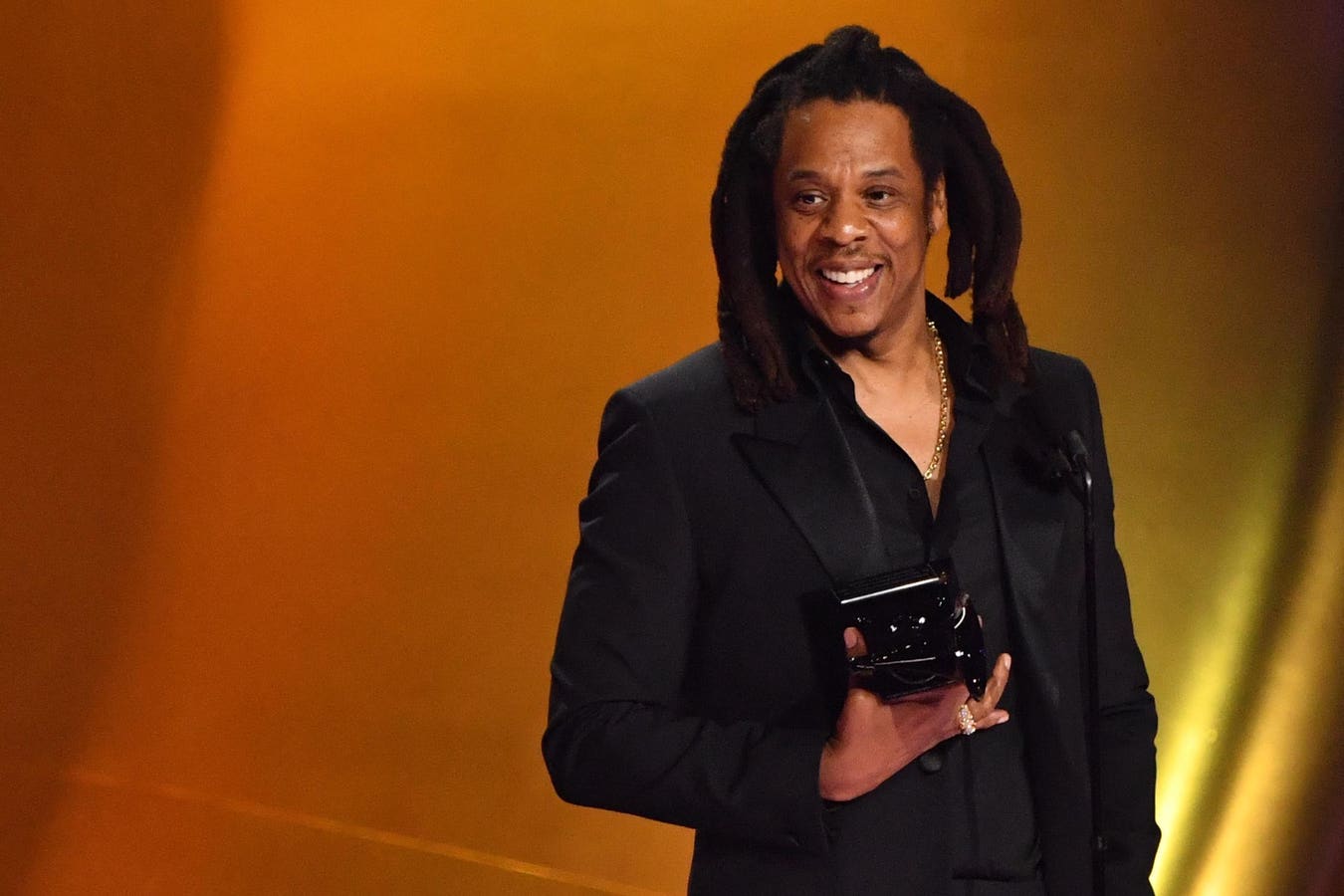TOPSHOT – US rapper Jay-Z accepts the Dr. Dre Global Impact Award on stage during the 66th Annual … More Grammy Awards at the Crypto.com Arena in Los Angeles on February 4, 2024. (Photo by Valerie Macon / AFP) (Photo by VALERIE MACON/AFP via Getty Images)
AFP via Getty Images
For decades, hip-hop artists have turned pain into poetry, struggle into style, and now, lyrics into liquidity. A new generation of rap moguls and artists are flipping the wealth script by investing in technology, transforming their cultural capital into venture capital. This isn鈥檛 just a business trend for music icons like Jay-Z, Snoop Dogg and Nas, among others, it鈥檚 a power shift, where ownership and innovation are becoming the bars that really matter.
The Breakdown You Need To Know:
CultureBanx noted that hip-hop鈥檚 influence has always extended far beyond the mic. Today, that influence is being translated into real capital gains. Artists like Nas made an early name in the VC space by investing in Robinhood, Lyft, Dropbox, Ring and PillPack and Coinbase, the cryptocurrency platform that eventually made him millions. Quee Venture Partners led the $25鈥痬illion Series鈥疊 round for Coinbase in 2013 when it was valued at $143鈥痬illion. This stake later soared to $100鈥痬illion by IPO, according to Creators Blueprint.
Jay-Z, through Marcy Venture Partners, has invested in everything from vegan food to spatial computing. The fund鈥檚 $2鈥痬illion investment in Uber鈥檚 Series鈥疊 2011 round, is now worth $70鈥痬illion. Reuters reported the hip-hop business man acquired Aspiro/Tidal in 2015 for $56鈥痬illion, and in 2021 sold majority stake to Block for $237鈥痬illion. Also, Marcy Venture Partners invested in JetSmarter as part of a $20鈥痬illion round, they later participated in its $105鈥痬illion Series鈥疌 round at a $1.5鈥痓illion.
Other honorary hip-hop VC investor mentions include Snoop Dogg and his Casa Verde Capital fund that participated in Reddit鈥檚 $50鈥痬illion funding round back in 2014, the company went public in 2024 and now has a $20鈥痓illion value. His fund has also invested in Klarna and Eaze. Chamillionaire, who has launched his own investment app, Convoz, and even won pitch competitions in Silicon Valley.
Staging A Startup:
These moves signal more than just financial diversification, they represent a reclaiming of narrative. For too long, Black creators have generated culture only to see others profit from it. By taking seats at the investor table, hip-hop is rewriting the rules of engagement.
MORE FOR YOU
Artist – Fund or Role – Notable Investments
Casa Verde Capital
Reddit, Robinhood, cannabis startups
Queensbridge VP
Dropbox, Lyft, Coinbase, Ring, PillPack
Arrive VC & Marcy VP
Uber, Tidal, JetSmarter
Black Thought
GP at Impellent Ventures
Rust Belt tech startups
Chamillionaire
EIR at Upfront Ventures
Lyft, Convoz social app
The intersection of music and tech isn鈥檛 entirely new. For example, Dr. Dre鈥檚 billion-dollar sale of Beats to Apple set a blueprint. What’s different now is the strategic focus on equity, innovation, and inclusion. These aren’t passive investments; they’re conscious efforts to back companies that reflect and uplift the communities hip-hop comes from.
For example, Jay-Z鈥檚 firm has backed Etsy competitor Mercari, fitness brand CLMBR, and even Partake Foods, a Black woman-owned vegan cookie startup. It鈥檚 about building ecosystems, not just portfolios.
Hip-Hop鈥檚 Business Playbook:
From the block to the blockchain, from mixtapes to cap tables, culture is capital and it鈥檚 finally compounding. However, there鈥檚 still work to do as less than 2% of venture capital goes to Black entrepreneurs, and even less to Black women. Hip-hop鈥檚 participation in the investment game can鈥檛 fix that alone, but it does offer a powerful counter-narrative, that cultural influence can become economic infrastructure.
Editorial StandardsReprints & Permissions
